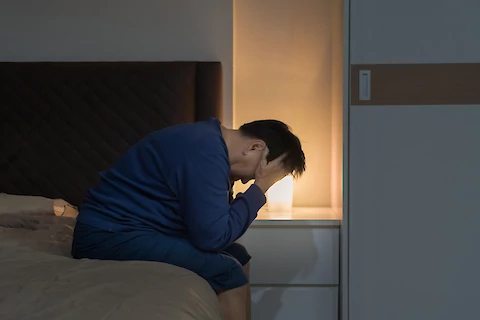
Sundowning, a common phenomenon in Alzheimer's patients, refers to the increase in confusion, anxiety, and agitation that occurs during the late afternoon and evening hours. As a person in the early stages of Alzheimer's, you may have already started to notice the effects of sundowning, or perhaps you're concerned about its potential impact on your daily life. There are ways to implement positive habits to minimize the effects. In this article, we’ll discuss ways to avoid the triggers of sundowning to ensure more restful evenings for you.
1. Establishing a Consistent Bedtime Routine
A consistent bedtime routine is crucial for individuals with Alzheimer's, as it helps create a sense of familiarity and structure. Going to bed and waking up at the same time every day can work wonders in managing sundowning symptoms. Creating a relaxing pre-bedtime environment, such as dimming the lights or playing soft music, can help set the stage for a peaceful night's sleep. Avoid stimulating activities, like watching TV or engaging in intense conversations, right before bed to minimize agitation.
2. Creating a Calm and Comfortable Home Environment
Creating a calm and comfortable home environment can significantly contribute to preventing sundowning. Reducing noise and clutter in your living space can help you feel more at ease. Using soft lighting in the evenings can create a soothing atmosphere. Incorporating familiar and comforting items in the house, such as cozy blankets or favorite antiques, can also provide a sense of stability and grounding.
3. Displaying Photos and Memorabilia of Loved Ones
Having photos and memorabilia of loved ones on display is essential for maintaining connections, as Alzheimer's patients may struggle to remember faces or significant events. Creating a designated area for these cherished items can be a helpful visual reminder of the people you care about. Update the photos and memorabilia regularly to keep them current. Engage in reminiscing or storytelling about the items to strengthen your connection with your loved ones.
4. Encouraging Socialization and Staying Active
Staying socially and physically active is essential for managing sundowning and anxiety in Alzheimer's patients. Engaging in group activities, joining local clubs, or participating in community events can provide a sense of belonging and prevent feelings of isolation. Taking daily walks or engaging in other forms of exercise can help maintain physical health and reduce anxiety. Encourage regular visits from friends and family to foster a robust support system. Remember to check with your doctor before beginning any new exercises.
5. Limiting Exposure to Stressful Situations
Minimizing exposure to stressful situations is paramount for Alzheimer's patients, especially if you want to avoid the triggers of sundowning. Identify your known stressors and develop strategies to avoid them. It could be as simple as seeking an alternate route during a busy commute or finding a quiet spot during a hectic family gathering. Develop relaxation techniques such as deep breathing or meditation. They can help manage stress and ensure a proper balance between activity and rest.
6. Monitoring Diet and Medication
Monitoring your diet and medication is critical for managing sundowning and anxiety in Alzheimer's patients. Consuming a diet rich in fruits, vegetables, and whole grains can have numerous health benefits, while limiting caffeine and sugar intake, especially in the evenings, can help reduce agitation. Keep track of your medication schedule and ensure you're taking them as prescribed and at the correct times.
7. Seeking Professional Help When Needed
Recognize when you might need professional help. If you or your loved ones are concerned about your sundowning symptoms, consult a healthcare professional for guidance. In-home care or adult day programs may be suitable options to provide additional support in managing Alzheimer's symptoms. Be sure to utilize local resources, such as support groups or Alzheimer's associations, which can offer valuable information and assistance.
Senior Helpers San Diego North Offers Care for Seniors Struggling With Sundowning and Anxiety
When you implement positive routines and habits, you can avoid the triggers of sundowning and anxiety in the early stages of Alzheimer's. By establishing a consistent bedtime routine, creating a soothing home environment, and staying socially and physically active, you can minimize the impact of sundowning and focus on enjoying life. If you or a loved one is living in Carlsbad, Escondido, Oceanside, San Diego, San Marcos, or Vista and needs additional support, we invite you to reach out to Senior Helpers San Diego North. Our compassionate team is here to help you manage Alzheimer's and its symptoms, providing you with the personalized care you deserve.